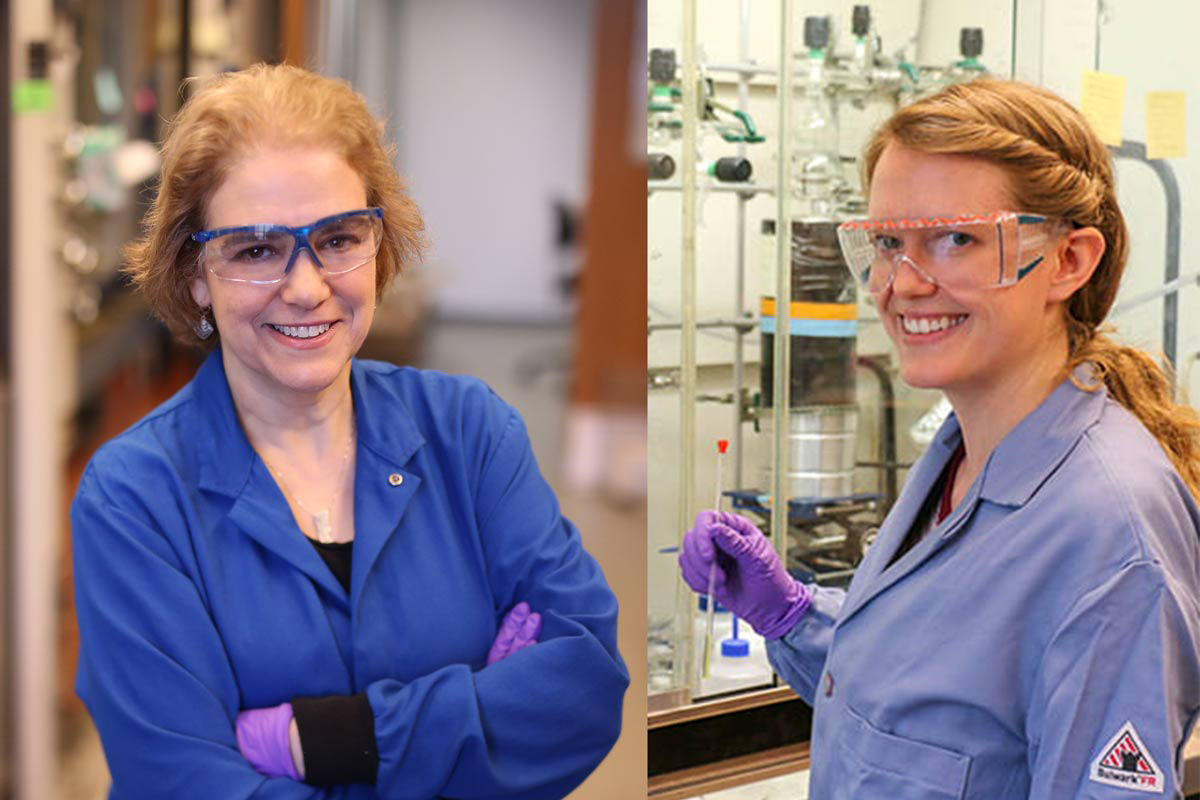Karen Goldberg, Vagelos Professor in Energy Research and director of the Vagelos Institute of Energy Science and Technology, has always been drawn to chemistry as puzzles to solve. She now works to solve puzzles related to alternative fuel sources. Her research group focuses on new systems to produce chemicals and fuels from a range of readily available feedstocks. Traditionally, byproducts obtained during the process of petroleum refining are used as chemical feedstocks to make everything from shampoo to medicine to clothing.
“Normally, people think of oil and their immediate thought is gasoline,” Goldberg says. “But an important byproduct of petroleum refining are other fractions of carbon chain lengths that aren't suitable for fuels, and that provides the petrochemical industry with their chemical feedstocks.”
Goldberg says that the problem of wasted feedstocks is prevalent, even if largely invisible to many people.
“We'll do outreach exhibits where we'll put a whole bunch of things on a table—tape, contact lenses, laundry detergent, an umbrella, aspirin, lipstick—and say, ‘Which of these comes from oil?’ she says. “And people are horrified to find out, it’s all of these things.“
Drew Newman is a doctoral candidate in chemistry and member of the Goldberg Group, which seeks to develop new catalytic systems to utilize readily available chemical feedstocks more efficiently. Newman’s work focuses on converting methane to methanol. Methane is the main component in natural gas, but a considerable amount of methane goes to waste because as a gas, it is difficult and expensive to transport. In contrast, methanol is a liquid which can be transported and converted to higher-value chemicals.
While people may worry about oil production and consumption, she cautions they should not fear chemicals. “Chemicals aren't bad. Water is a chemical. The field is very interested in alternative carbon sources for chemicals and fuels because the goal is to move away from a petroleum society.”
While this fundamental research could lead to greener technologies, Goldberg says that policy must work with science to create a greener future. Newman’s work on methane provides an example.
“A carbon tax would immediately change the picture on flaring gas,” says Goldberg. “Now, companies flare gas because it’s too expensive to transport it. But if you put a monetary value on methane emissions, then the equation changes, and companies are more motivated to find a way to transport or convert that gas.”
This story is by Lauren Rebecca Thacker. Read more at OMNIA.


